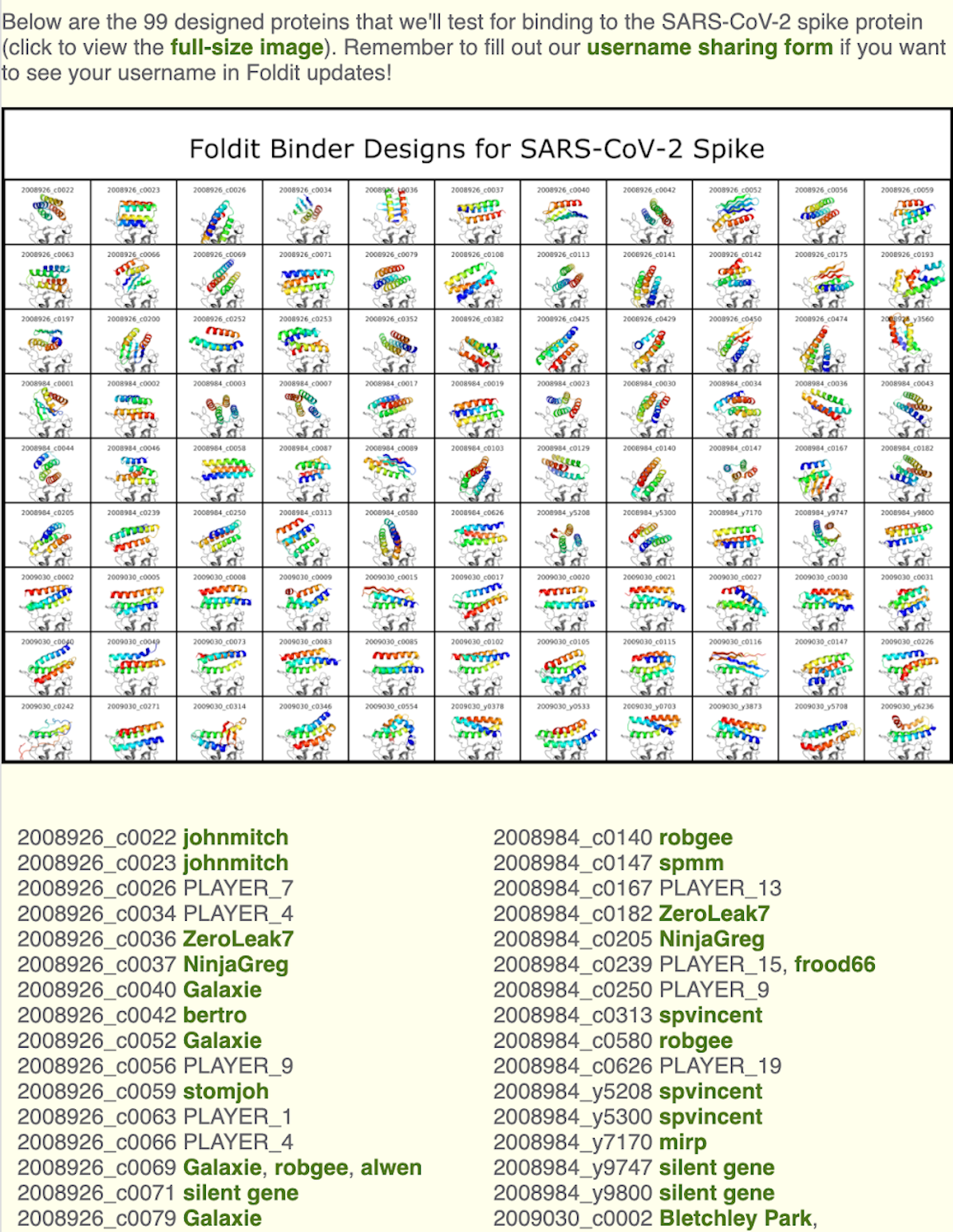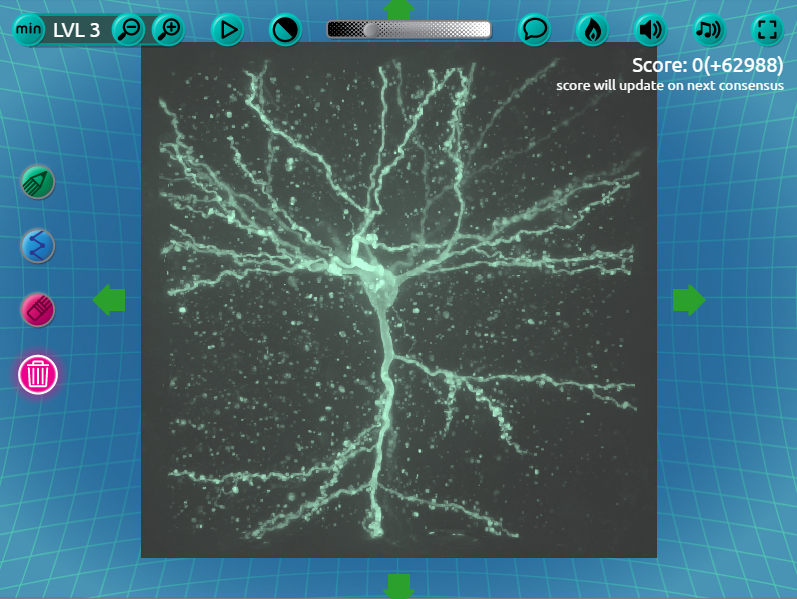Accelerating Science Through Gaming in the Time of Coronavirus
October 1, 2020 / by Saira Mortier, Research Program Coordinator at University of Washington’s Center for Game Science
This is a guest blog post written by Saira Mortier, Research Program Coordinator at University of Washington’s Center for Game Science
For better or worse, COVID has pushed its way into just about every facet of life. While most of these effects have been negative, its influence on game-based science research has been a positive one. Working from home–one of COVID’s biggest impacts on the professional world–has significantly accelerated scientific discovery through gaming. We’ve also seen the critical field of antiviral research explode with new non-expert participants attempting to solve the Covid conundrum.
Citizen Science games have had a number of successes over the years. By combining scientific minds, video games, and everyday people, we foster an environment in which incredible learning and advancement can take place. Recently, the biggest science-related questions on everyone’s mind revolve around Covid-19. So how do we use the power of Citizen Science to address these new challenges?
Since February 2020, Foldit (a protein designing citizen science game) has been posting coronavirus puzzles. Our hope is that players will find ideal protein structures for an antiviral drug with the power to combat coronaviruses. This task is not unfamiliar to Foldit and its community. In 2011, players managed to solve part of the AIDS/HIV puzzle that had eluded professional scientists for over a decade.
Since publishing the first coronavirus puzzle in February, well over 50,000 new players have flocked to Foldit to do their part. As players all over the world share their protein designs, researchers at the University of Washington’s Institute for Protein Design evaluate, manufacture, and test player compositions for crucial binding activities. Promising designs are then further tested and are eventually moved on to clinical trials. Designing these proteins is the crucial first step toward creating a new drug.

Screenshot of the Foldit Blog listing the first 99 designs they will be testing and the players who created the designs
Foldit shows us how everyday people and biochemical scientists can work directly on coronavirus research. But how can we use the current circumstances to hasten progress in other scientific disciplines?
With the spread of coronavirus, many of us have been displaced from our offices and have to set up shop at home. Many scientists find themselves without a lab, adjusting to life as “digital citizens.” This has afforded us a unique opportunity to accelerate citizen science projects by bringing trained scientists deeper into these projects.
Citizens vs. Scientists “Coopetition”
When Washington State’s shelter-in-place order hit, the scientists at the Allen Institute for Brain Science were displaced from their specialized equipment and software. While this would normally have halted progress on neuronal reconstructions, Citizen Science game Mozak provided a platform for them to not only continue their work, but join forces with the Mozak community.
Mozak, which launched in 2016, takes images of actual neurons and presents them to players via a game platform. Players from all over the world trace the winding arbors of dendrites and axons. The resulting data are near-complete neuronal reconstructions with a high degree of accuracy. These reconstructions give scientists invaluable insights, allowing for study of the brain at a microscopic level. But now, instead of simply receiving datasets from Mozak, scientists have become a part of the active tracing community. This situation has provided a unique opportunity to connect the two disparate communities of Mozak.

The Citizens vs. Scientists Neuron Challenge ran during the first week of April. In this “coopetition,” different labs at the Allen Institute for Brain Science competed against Mozak’s players. All players worked on the same neurons, ferociously tracing and allowing the background-run consensus algorithm to correct any mistakes. You might assume that neuroscientists—who do this work for a living— would far surpass everyday people. But citizens ended up scoring more than 57,000 points over the highest ranked lab. During the week of the challenge, the combined power of scientists and citizens resulted in an unprecedented 12 neurons reconstructed! Since the challenge’s completion, an additional 158 neurons have been completed, a three-fold increase in speed over pre-pandemic rates.

There is no doubt that this pandemic has been a tumultuous experience for humanity. There has been so much loss, isolation, and struggle. But there are at least some positives that have come from these difficult times and those positives will have lasting effects on how we work, play, and advance.
